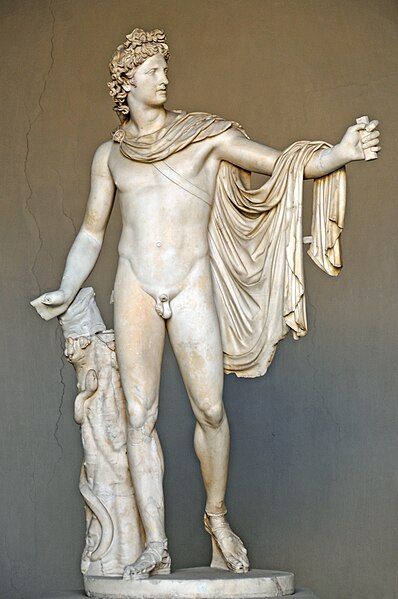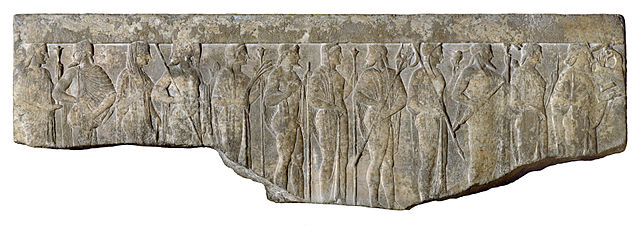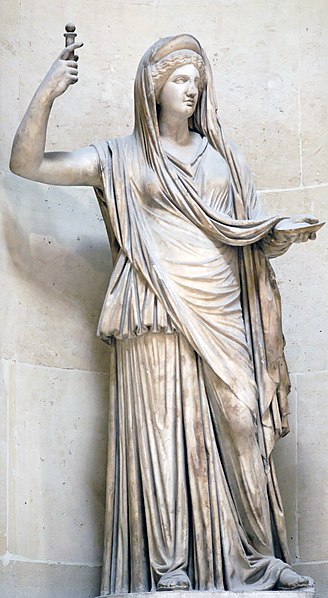Apollo is one of the Olympian deities in classical Greek and Roman religion and Greek and Roman mythology. Apollo has been recognized as a god of archery, music and dance, truth and prophecy, healing and diseases, the Sun and light, poetry, and more. One of the most important and complex of the Greek gods, he is the son of Zeus and Leto, and the twin brother of Artemis, goddess of the hunt. He is considered to be the most beautiful god and is represented as the ideal of the kouros. Apollo is known in Greek-influenced Etruscan mythology as Apulu.
Apollo Belvedere, c. 120–140 CE
Apollo, God of Light, Eloquence, Poetry and the Fine Arts with Urania, Muse of Astronomy (1798) by Charles Meynier
Apollo, fresco from Pompeii, 1st century AD
Apollo sculpture, Palazzo Giusti Verona, Mannerist art with typical contrapposto
In ancient Greek religion and mythology, the twelve Olympians are the major deities of the Greek pantheon, commonly considered to be Zeus, Poseidon, Hera, Demeter, Aphrodite, Athena, Artemis, Apollo, Ares, Hephaestus, Hermes, and either Hestia or Dionysus. They were called Olympians because, according to tradition, they resided on Mount Olympus.
Fragment of a Hellenistic relief (1st century BC–1st century AD) depicting the twelve Olympians carrying their attributes in procession; from left to right: Hestia (scepter), Hermes (winged cap and staff), Aphrodite (veiled), Ares (helmet and spear), Demeter (scepter and wheat sheaf), Hephaestus (staff), Hera (scepter), Poseidon (trident), Athena (owl and helmet), Zeus (thunderbolt and staff), Artemis (bow and quiver) and Apollo (lyre) from the Walters Art Museum.
Image: Jupiter Smyrna Louvre Ma 13
Image: Hera Campana Louvre Ma 2283
Image: Statue of Poseidon NAMA 235 (Der Hexer), part 2








